On God & Money: Who and What is in Service to Whom? (Matthew 6)
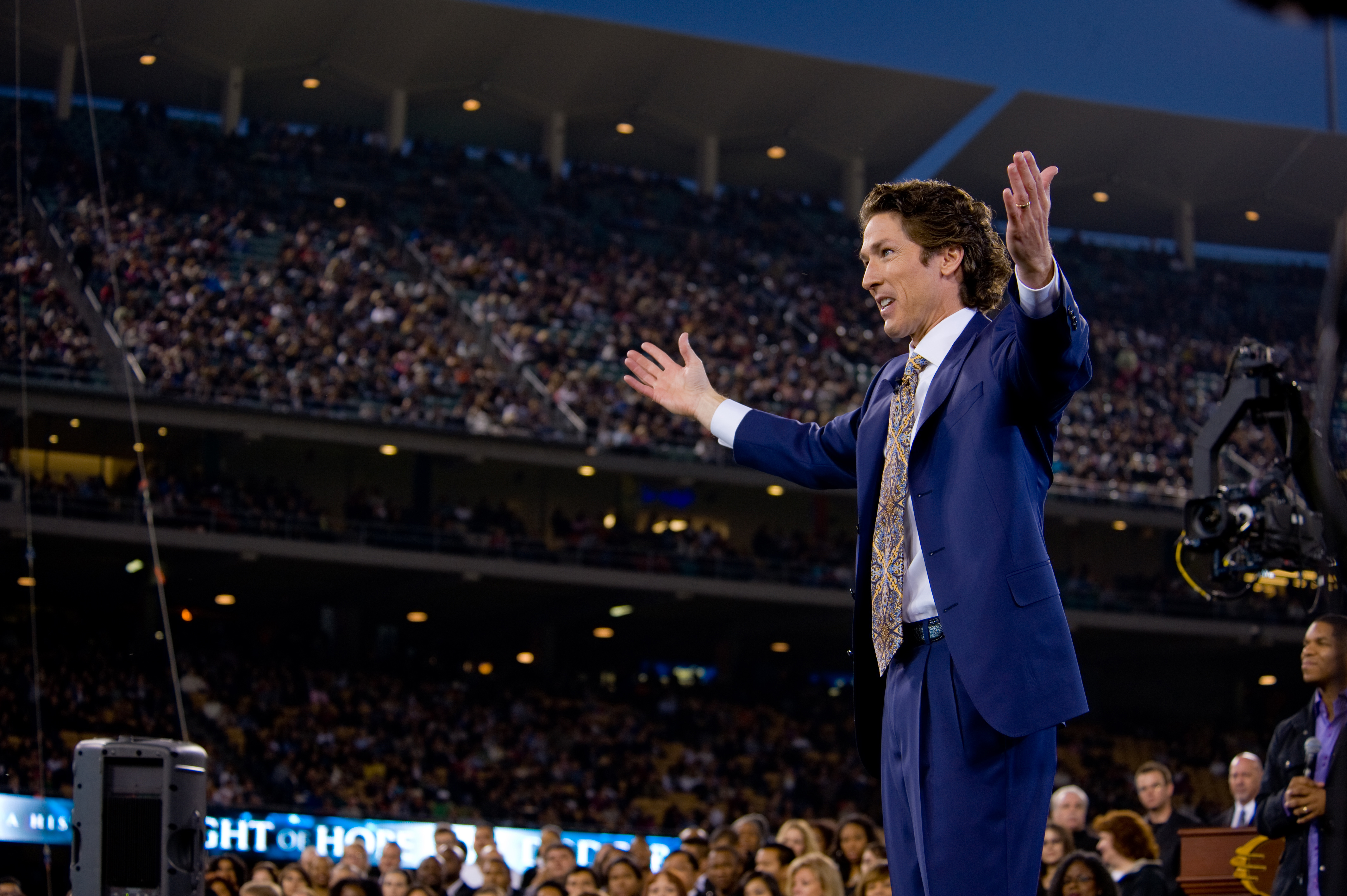
“No one can serve two masters; for a slave will either hate the one and love the other, or be devoted to the one and despise the other. You cannot serve God and wealth.” (Matthew 6:23–24)
The Splitting Apart
This past week news broke that the Joel Osteen’s mega-church called “Lakewood Church” in Houston Texas was robbed of $600,000 in offerings. These were the offerings they collected from their services on Saturday and Sunday. Each weekend there is about 40,000 people who attend Osteen’s church. If you’re not familiar with Osteen, he is considered to be one of today’s most popular “Health and Wealth” televangelists. His bestseller “Your Best Life Now” has sold more than $4 copies. He reportedly takes no salary from the church but makes about $55 million a year from book sales and lives in a mansion valued at almost $11 million.
It is interesting to lay this story along side Jesus’ teachings here on the sermon on the mount. I realize that Osteen’s fame and fortune are a bit of the extreme, but I think that this is the kind of stuff that has created a split within our understanding of Christian faith.
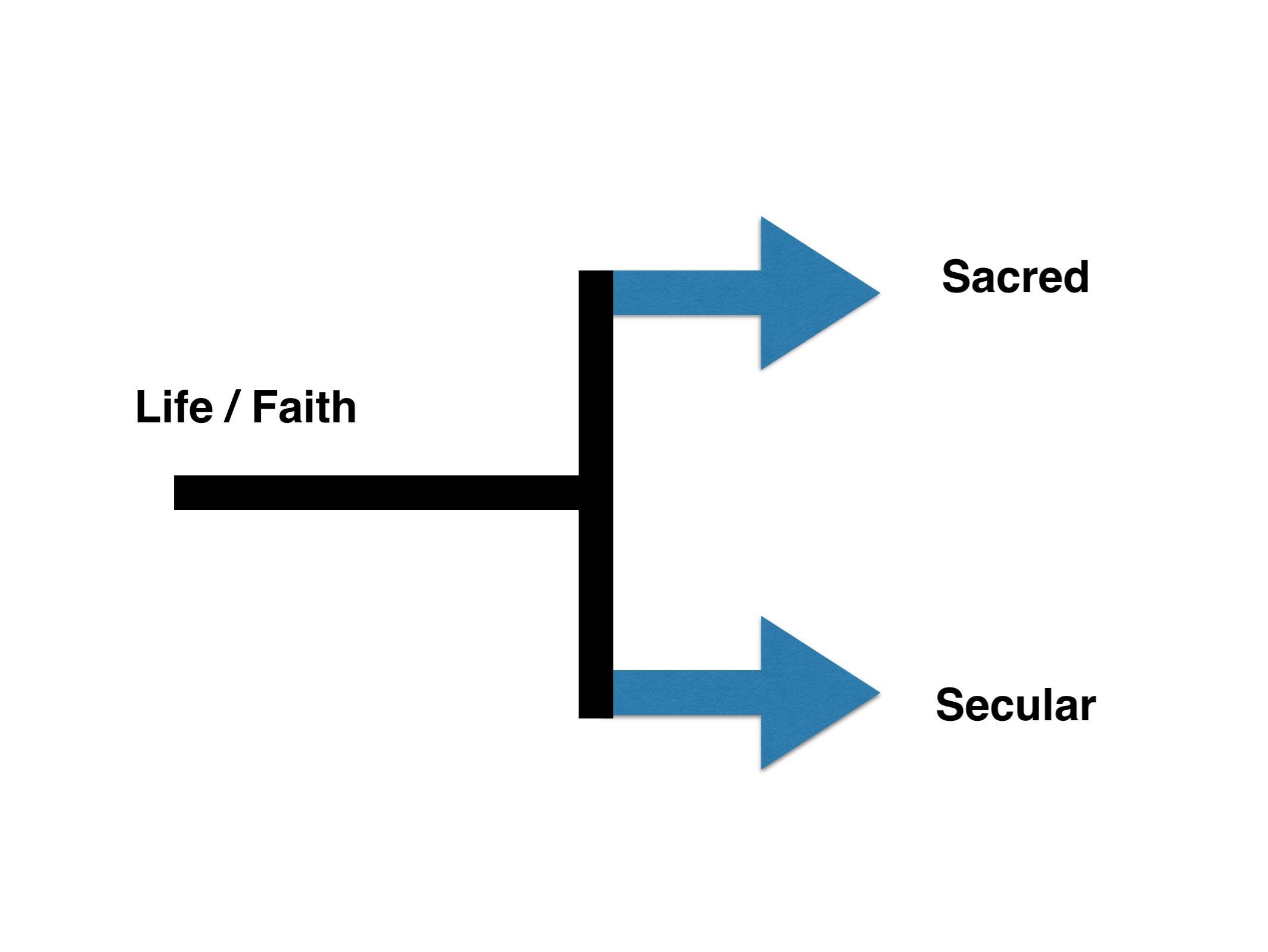
Historically speaking, during the Enlightenment, there was a growing split between normal everyday and spiritual life:
One the one hand you have sacred things: church life, baptism, communion, bible teaching, death and marriage. All things the church takes care of. And faith in this period is very private, it is about me and God. This was born out of a growing weariness of many of the abuses by the church. It had become so powerful and corrupt that there was a kind of revolt that led to what we now refer to as the separation of church and state.
On the other hand you have secular things: things that are non-religious, even “godless” from some perspectives. Legal issues, politics, philosophy, science, and even economics would fall under this category. This was a way to keep God and the church out of bed, so to speak, with the state.
And wasn’t at least some of this a good thing? I mean, early Quakers rose during a time when the state heavily persecuted dissenting religious voices because they were not a part of the state-sanctioned church. Tithing back then was compulsory, meaning it was like a tax, if you didn’t tithe you could be arrested or have your belongings confiscated.
And think about how this split shows up in our contemporary culture: every time we start talking about abortion, same-sex marriage, war, caring for the poor you have conflicting ideas emerge that find their origins – quite often – in this splitting of the sacred and the secular.
So you have something like this happen with Joel Osteen, and frankly, one reaction is, this is yet another example of how God and money don’t mesh, and why we need to keep this sacred, secular split alive.
So what is Jesus getting at here in the Sermon on the Mount?
Is he saying that there is this dramatic split between heaven and earth, sacred and secular, and we need to keep them that way? That this move is a good thing?
And if this isn’t what he’s saying, what is it he is getting at?
Tearing down temples
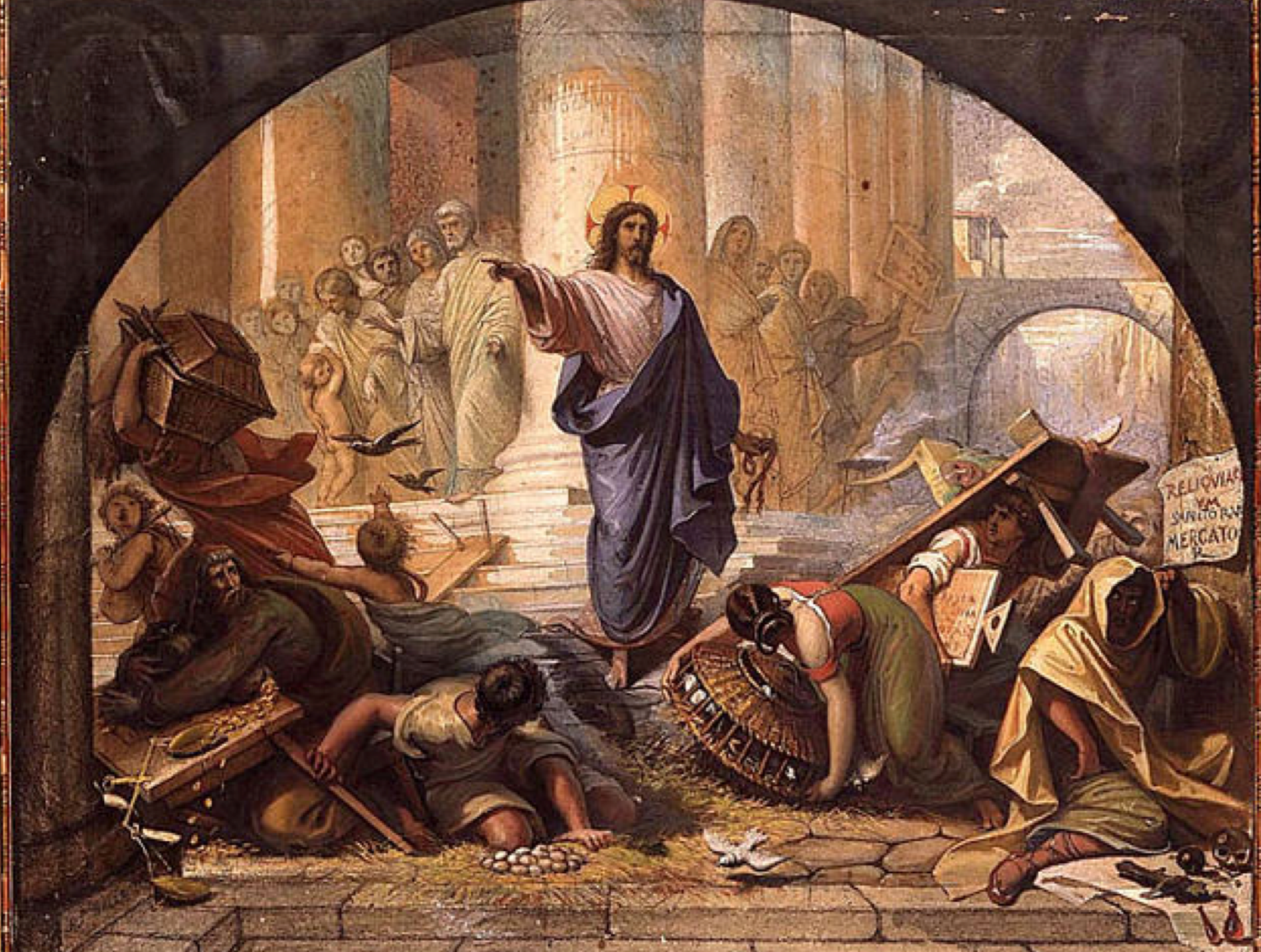
There’s a passage in the Gospel of Mark that sheds light on this (12:41-13:2). There Jesus meets a widow who gives her two last coins to the temple priests. I think the Greek translates too “He flips his lid” and so he threatens that the temple will be thrown down.
Here’s the kicker: Jesus is angry because the temple of God has become the temple of mammon. He offers a prophetic critique not because God and Money do not mix, or because God has nothing to say about what we do with our resources, but because God is never in service to money.
God refuses to be put in a subordinate position to “the god of mammon.” The problem here in Mark 12-13 is that God has become a commodity to sell, so that those who run the temple can get rich. And, an even greater concern is that in the process they have neglected caring for the widows, orphans and the poor. All of which is commanded of them by the laws in the Hebrew bible of which the temple priests know better!
So as in Mark, I think something similar is true here in Matthew: For Jesus, the problem isn’t that there needs to be a split between sacred and secular, but that mammon becomes like a god when it is unteetherd from a rightly-ordered relationship with the one true God.
Collapsing Sacred/Secular Divide

One thing that helped me to see where there is a breakdown between this split between sacred and secular is something very simple.
A stuffed animal named “Lovey” (name has been changed to protect the innocent).
Our daughter M. has this little stuffed dog that some of you have seen that holds a lot of significance in our house. M. got Lovey when she was one and Lovey, and her side-kick blanket, rarely leave her side. Often before bed Mae will ask for a “Lovey story” in which Emily or I will make up a story about adventures that she, Lovey and blanket go on.
And Lovey has impacted my wife Emily and I, just the other day, while I was still in Philadelphia M. let Emily take a nap with Lovey and Emily said she had one of the best naps ever. Now after about 3 years of serious love and countless adventures, Lovey is a little worse for wear, but M. pays no mind and loves her all the same.
So when we get to the part of the sermon on the mount where Jesus starts says:
“Do not story up for yourselves treasures on earth, where [eating] consumes and where thieves break in and steal…”
Is Jesus really saying that this little object is a secular, godless object that is only bound to lead M. astray? Is Lovey terrible, because Lulu cannot be taken to Heaven? Because Lulu can be “eaten” by bugs, vermin, etc?
No, I don’t think so.
I don’t think that Jesus is unhappy with M. for loving Lovey, nor do I think Jesus is ticked off that you have a locket from your granddaddy that you cherish, or a painting from a great aunt, or a journal from your mother.
I have seen this passage or at least this sentiment used as an excuse to not take care of or value what we have, to devalue the earth itself, and to pay no mind to the destruction that we wreck upon it.
It’s like: if we can’t live up to it, and all it does is make us feel guilty, than we might as well just go on our own way and do whatever we want and pretend to care, while not really caring.
One thing Lovey has taught me is that just like there are “thin places” there can be “thin objects,” objects that point us towards God or even help to ground us in a right relationship with Christ.
There can be something sacred even with a child’s little stuffed animal.
Lovey gives comfort, and is a symbol of love for M. She is packed full of M.’s snuggles, her joys, her prayers and her tears.
Lovey is a treasured part of our family. M. shares her with L. and C. (our other kids) when they are sad or hurt. She plays a role in our family. Lovey doesn’t get played with in the same way that other toys are played with. She isn’t shared in the same way. And when people have the honor to hold Lovey they often remark that there is something “grounding about her.”
It’s interesting but I’ve never quite thought of the presence of a stuffed animal like this before, but this is something M. has taught me.
I don’t want to make too much of this, but I want to break down this dichotomy that often gets built up here.
Treasure on Earth and Treasure on Heaven are not treasure in two different places (here and out there), nor are they meant to necessarily meant to make a split between the things we can see and the things we can’t.
Q: Instead, as Jesus asks the question: Who (and what) is in service to who?
So the question isn’t about two separate categories: good stuff and bad stuff, but what are we filling up on? What are we investing our life’s work in? What are we building up?
Bring Everything Together In Christ
Wendell Berry writes:
There are no unsacred places, there are only sacred places and desecrated places.
I think this is Jesus’ view too. That nothing is outside the realm of sacred. There may be places and people in the wold in need of love and affirmation, healing and reconciliation, but there is nothing unsecured.
So instead of a splitting apart the world:
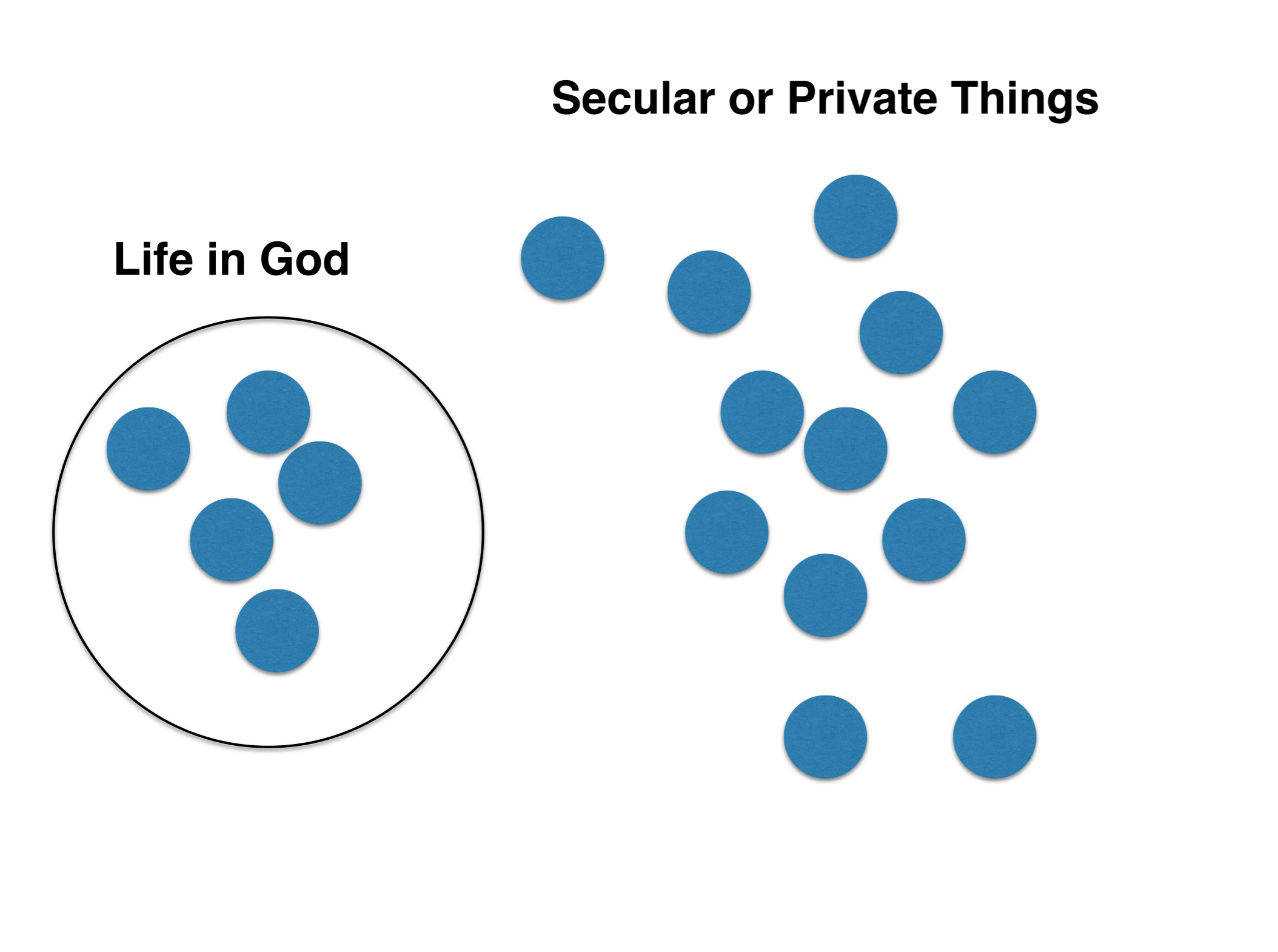
I believe everything is meant to come together within the realm of the reign of God:
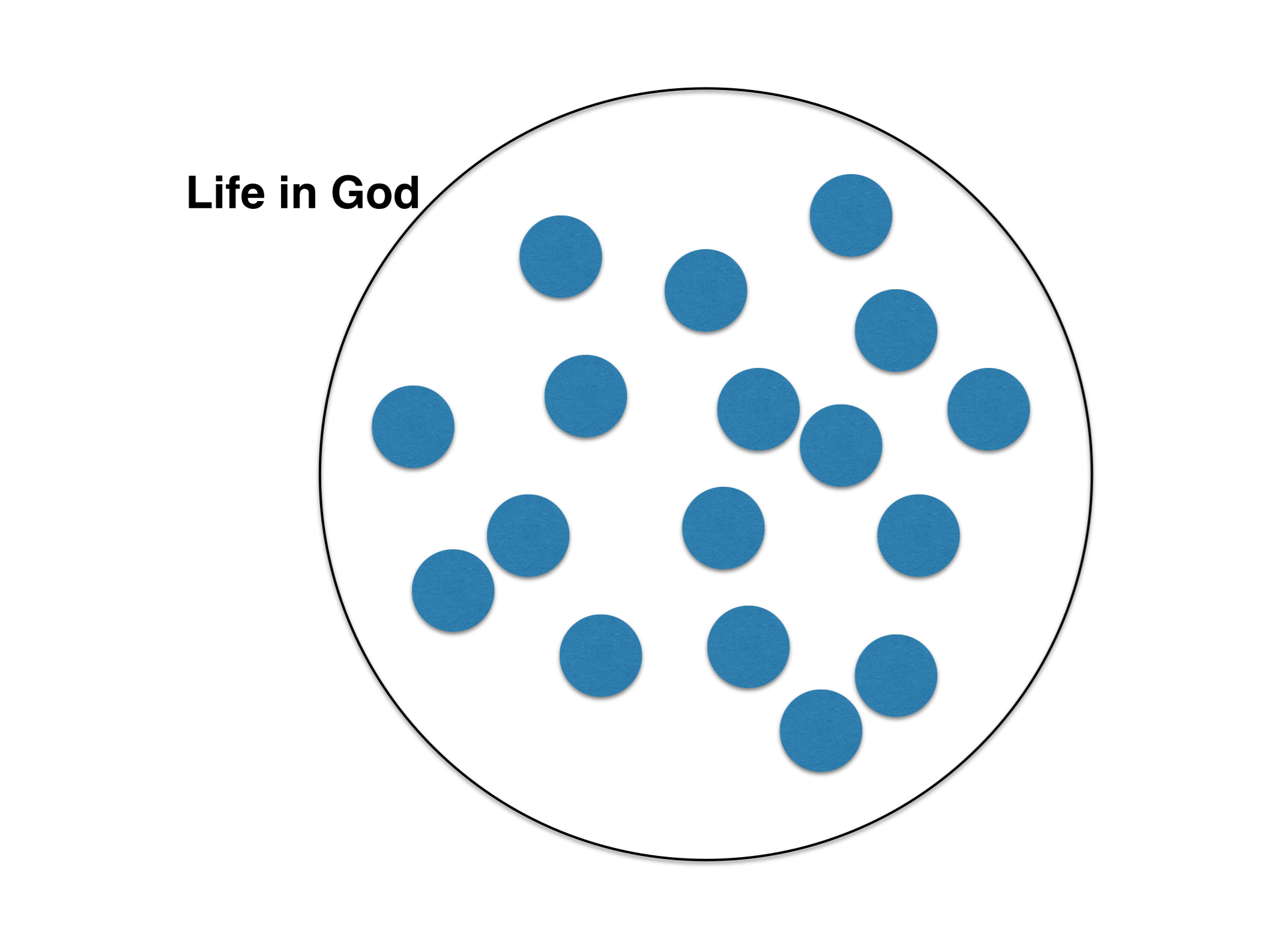
Every place is a sacred place or a place that was once sacred and now destroyed. We are surrounded by places, people, and objects that are dipped in the fingerprints of the Holy. When we look around do we see the beloved treasures of heaven present right here in this room. Don’t settle for living divided lives. With a little sacred here and a little secular there. So let’s continue to work to bring everything to God in worship.
Query:
When it comes to serving masters: Who and What is in Service to Whom?